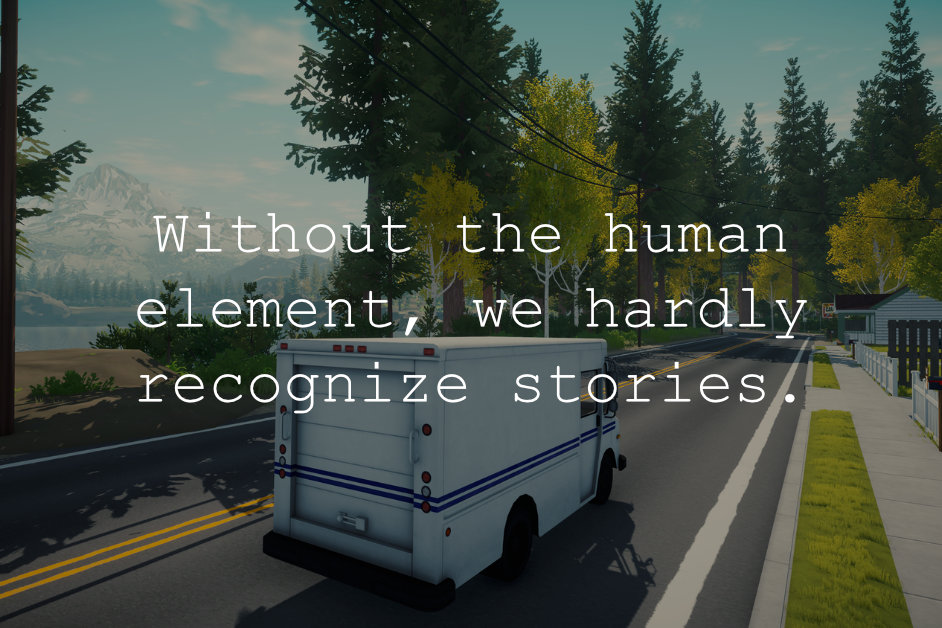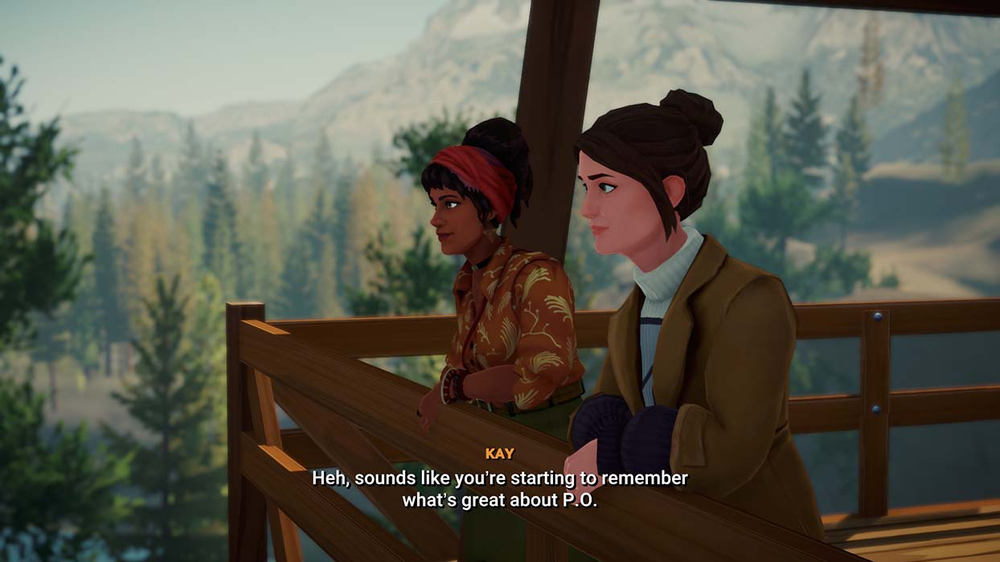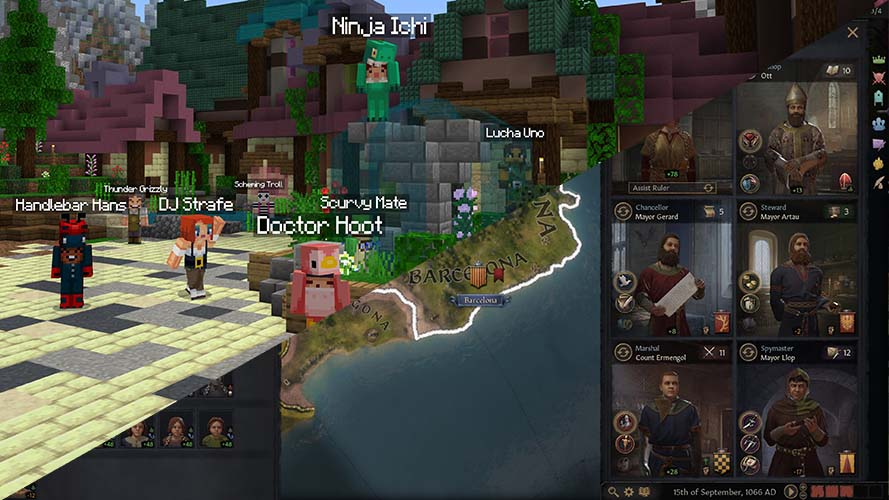An interactive review about interactive stories

ChatGPT was used in parts for the translation of this article from German to English.
Out of the city and into the small town of Providence Oaks in the mid-1980s. “Lake” is a kind of charming small adventure, I really enjoy. The protagonist, Meredith Weiss, takes on a sort of “vacation job” in her hometown, temporarily filling in for her father as a postal carrier. The small, interactive story is more about the people in the town than the plot itself. So, for two weeks, you drive around the lake town, deliver mail, talk to the locals, and enjoy the digital tranquility.
The game’s simple art style, at its best moments, resembles “Life is Strange,” and at its worst, like a small developer’s attempt at an open-world game. It’s not perfectly polished, but it doesn’t need to be to effectively convey its atmosphere. While delivering mail, you can listen to the local radio station. The music is…
Gameplay-wise, Meredith’s daily routine is one of relaxing monotony. You don’t need to exert much effort and can simply enjoy the surroundings. The only goal is to deliver all the letters and packages to their recipients. In between, you chat with people, and at the end of the workday, you get to decide how to spend your free time: reading a book, watching TV, meeting up with an old friend, or helping a colleague from the city with a contract. Everything is pleasantly mundane. While I don’t need this kind of banality in every game, it’s surprisingly nice not having to play the big hero every once in a while. While there are important decisions to be made that impact Meredith’s life, they don’t carry weight for Providence Oaks or the whole world.

The interactive story is interesting—or rather, the fact that there’s an interactive story at all is interesting. I often find myself wondering whether it’s really necessary, even though I’m a big fan of interactive narratives, I love games by Telltale and Dontnod, and I even wrote my pre-scientific paper for my Matura (Austria’s high school graduation thingy) on interactive storytelling. But the question “Why even bother?” is one that should be considered at times. So then, why even bother?
There are quite a few games that attempt the construct of interactive storytelling. The effort involved is usually very significant, because you essentially have to write more than one story. But if you don’t want to put that much work into it, you might have to deceive the player a bit. However, in my view, games that label themselves as interactive stories aren’t necessarily the best examples of what interactive narratives can offer. They are…

Did “Lake” need an interactive story? No. Did it harm the game? Also, no. In this case, I think…
If you actually only chose one of the options throughout, then on one hand, I’m impressed by your determination. On the other hand… well, is this really the definitive version of the text? What’s part of the canon of this blog, and what’s just extended universe? I suppose we’ll never truly know.
Sometimes it’s enough to simply fake things—we love magic tricks, even when we know it’s just a trick. Sometimes, all the things we miss when experiencing interactive stories make the world feel a bit more convincing. And sometimes, it’s the truly abstract stories, like those in “FIFA” or “Crusader Kings,” that stick with us. They may not always be necessary, but that doesn’t mean we should stop telling interactive stories. At best, they enrich the way we write and experience stories; at worst, a story might not work as well as it would have in a linear form.